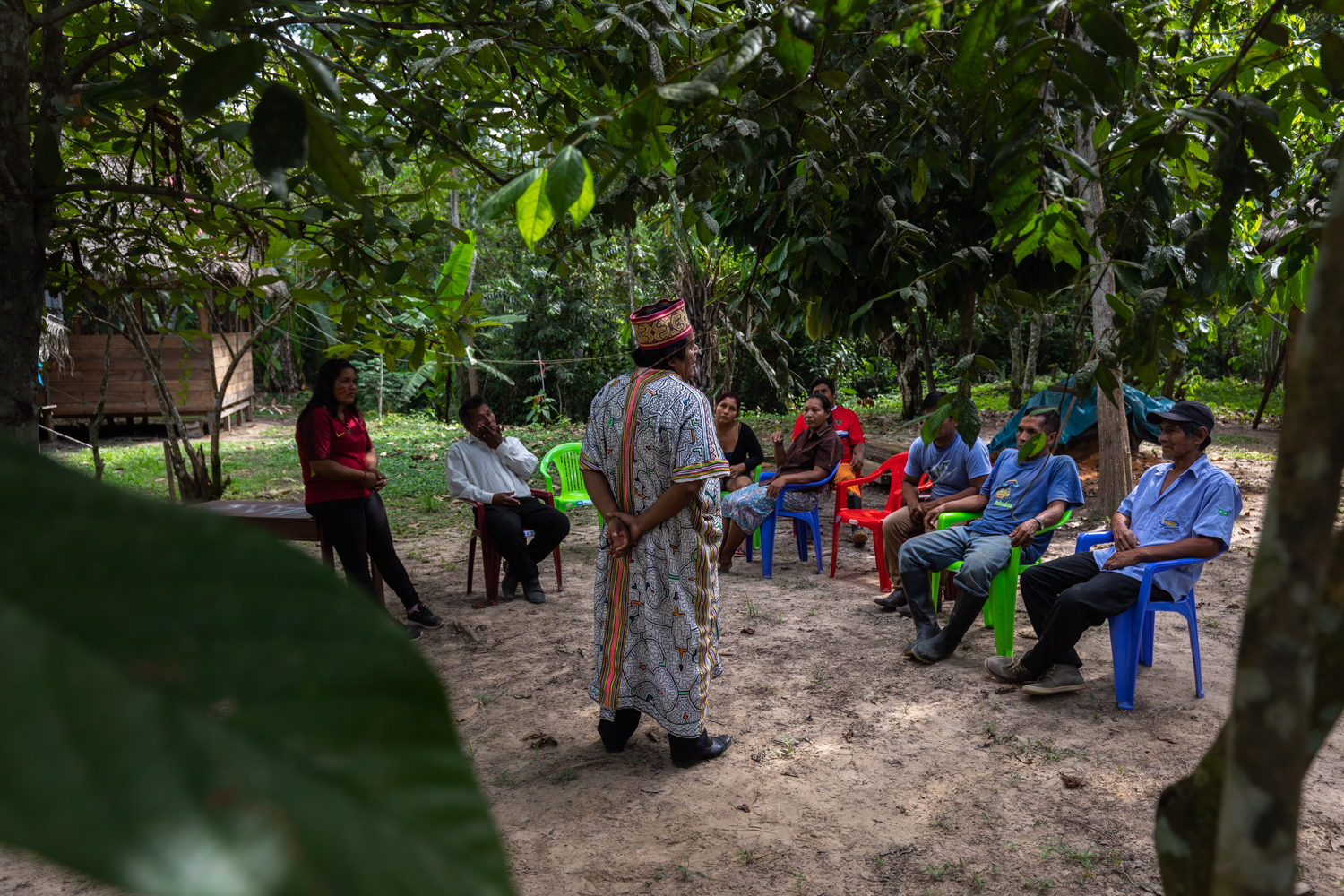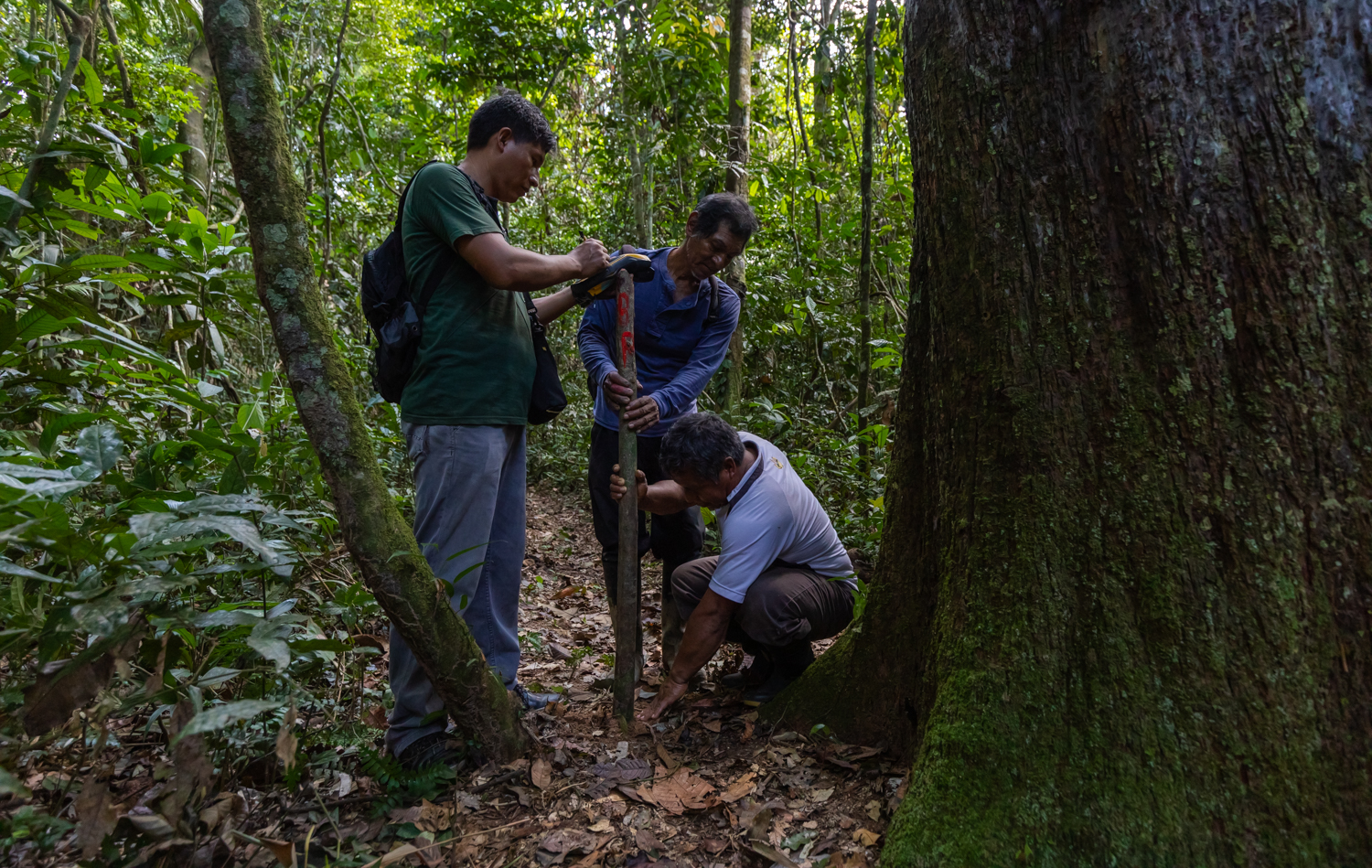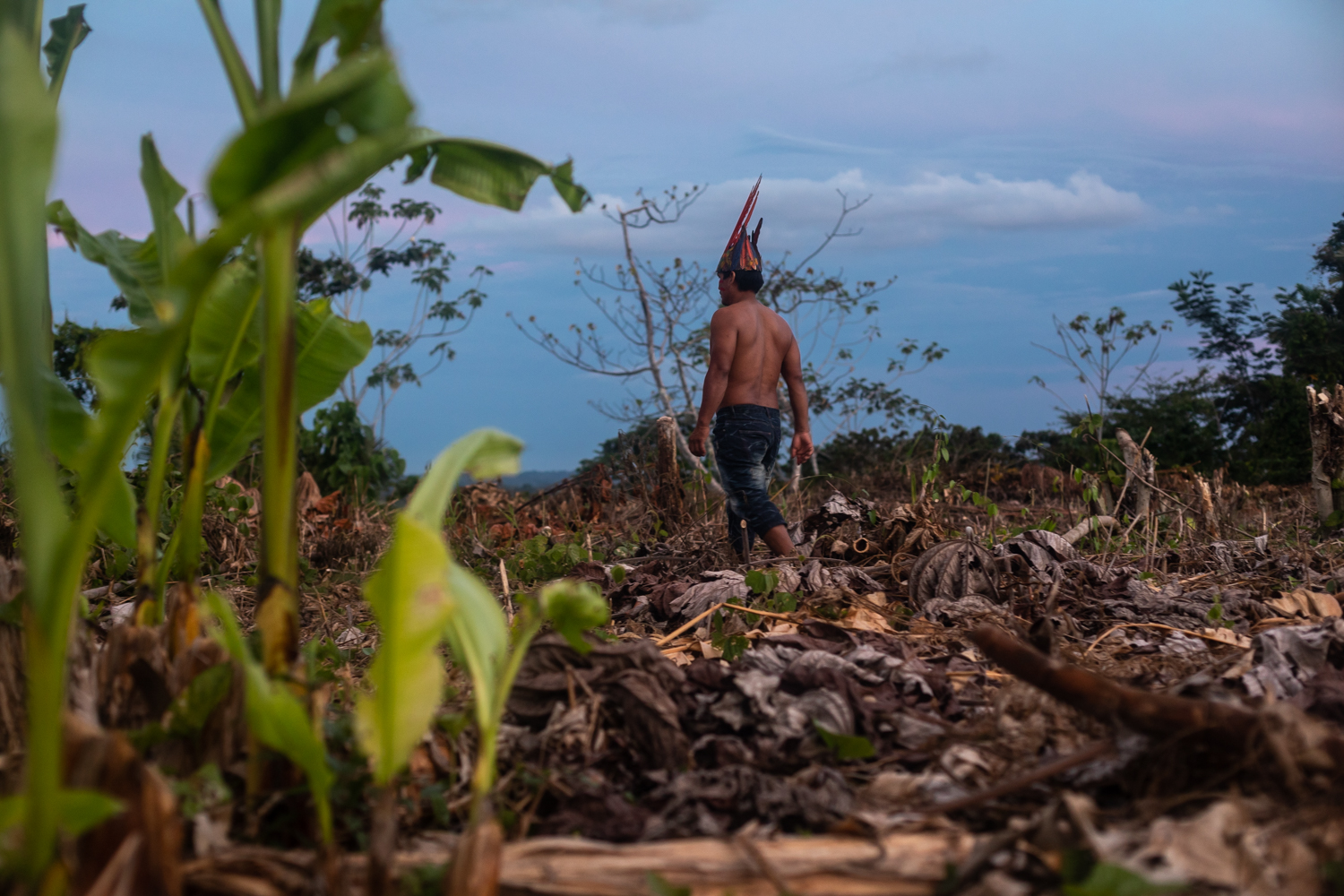2024-03-27
What if indigenous communities were empowered to protect one of the planet’s most important natural tools to fight climate change?
This question catalysed the creation of Tenure Facility in 2017. Today, it remains at the core of our theory of change, which is based on the mounting evidence that when Indigenous Peoples, Afro-descendants and local communities have strong land rights and solid governance, climate and conservation outcomes are better.
One place that exemplifies how we’ve evolved over time is Peru, where Tenure Facility has been supporting work since our founding. Over more than five years, the Peruvian Society for Environmental Law (SPDA) partnered with the Native Federation of the Madre de Dios River and Tributaries (FENAMAD), the Regional Organisation of Indigenous Peoples of the East (ORPIO) and Inter-Ethnic Association for the Development of the Peruvian Rainforest (AIDESEP) to advance indigenous tenure security in the Peruvian Amazon.
One of the world’s 17 “megadiverse” countries, Peru ranks fourth globally in terms of tropical forest cover, with more than 68 million hectares. It is also home to 55 different indigenous groups, 51 of whom live in the Amazon.
Like many countries in Latin America, Peru’s Constitution recognises indigenous rights to land. Since the 1970s, moreover, the Peruvian government has issued land titles to “native communities” in the Amazon. There is solid evidence that, given the right conditions, such titled lands can slow down deforestation.

Diego Pérez/SPDA
"With time, our vision – which initially strongly emphasised legal work – expanded into a diverse, multistakeholder approach..."
Overcoming government hurdles
But a host of problems has stood in the way. For decades, government policy has aggressively promoted extractive industries, awarding concessions for logging, oil and gas production, and mining. This has led to fragmentation and degradation of indigenous ancestral forests – both titled and untitled. It has also engendered mistrust and fuelled social conflict, exemplified by the violent confrontation between indigenous groups and police in Bagua, Amazonas, in 2009, which left 33 people dead and more than 150 wounded.
“There are so many pressures on indigenous forests in the Amazon,” says Jorge Pérez Rubio, President of AIDESEP, the main organisation in Peru representing indigenous groups from the Amazon. “Indigenous communities protect over 20 million hectares. We are fundamental to the fight against climate change.”
“Because of this, we should be given rights over the maximum amount of territory, both because of our ancestral possession and also because of our spirit as true conservationists,” continues Pérez Rubio. “We are actually the state’s main ally. But they still don’t realise it.”
Bureaucratic bottlenecks and a lack of government capacity and will have made the titling process increasingly expensive and time consuming. Corruption and weak enforcement of already-recognised titles allows for loopholes to be exploited by powerful business interests, as a recent report documented. Entrenched instability in Peruvian politics and the rise in organised crime and violence in the Amazon does not help matters.
Amid such challenges, Tenure Facility supported two successive projects led by SPDA to strengthen land rights among FENAMAD and ORPIO communities in Madre de Dios and Loreto, respectively. Taken together these regions cover over half of the Peruvian Amazon.
The results of this long-term partnership were recently summarised by SPDA in a publication called “Joining Forces.” Over the course of both project phases, the partners improved legal security of more than five million hectares of Indigenous territory, benefiting over 170 communities.

Diego Pérez/SPDA
Adopting a diversified approach
These achievements did not come easy. Uncertainty and near-constant disruption required flexibility and creativity.
“Over the years, we adapted our approach,” said Silvana Baldovino, SPDA’s Biodiversity and Indigenous Peoples Programme Director. “With time, our vision – which initially strongly emphasised legal work – expanded into a diverse, multistakeholder approach, including extensive communications and advocacy, as well as technical support to government and to communities in the field.”
Likewise, the thematic focus evolved, moving beyond the titling of native communities to support actions related to forest monitoring, gender justice, and the protection of Indigenous Peoples in isolation and initial contact (PIACI in Spanish), who are some of the most vulnerable people on Earth.
This diversified approach led to major impacts across the Peruvian Amazon.
As a result of the project, 1.5 million hectares of indigenous territory in Loreto and Madre de Dios now have secure titles, and more than 100,000 hectares of titled forest communities have strengthened protection through indigenous forest monitoring and legal support. Additionally, more than 4 million hectares of forest reserves that are home to PIACI communities have strengthened legal protection.
"Indigenous communities protect over 20 million hectares. We are fundamental to the fight against climate change."
Constant political uncertainty
These gains are hugely impressive, especially considering what the partners were up against.
Over the course of the two project phases, Peru had six different presidents, four of whom were removed or resigned. Meanwhile, the project’s most important counterpart agencies – the Ministry of Agriculture and the Ministry of Culture – both saw more than a dozen new ministers come and go. At the regional scale, instability was even more pronounced. Shifting mandates and dwindling budgets among agencies added to the challenge.
On top of this political dysfunction, the COVID-19 crisis hit Peru hard and work in the field was paralysed for many months.
Despite these obstacles, the project achieved major wins for Indigenous Peoples rights.
Such gains have changed lives. “Titling means protecting our forest, which protects our lives,” said Luis Garcia, head of the Francisco Bolognesi native community in Loreto. “It means achieving the future our parents once dreamed of for us, and protecting where my children are growing up.”
But as fundamental as titling is, it is just the first step in safeguarding territories. Recognising this, in Madre de Dios, SPDA and FENAMAD developed locally-based forest monitoring to control incursions by illegal miners and loggers. In Loreto, meanwhile, SPDA worked with ORPIO to support legal training for communities to combat illegal logging.
“Titling is an important basis for protecting our forests, but communities also need support to defend their territory,” says Alfredo Vargas Pío, President of FENAMAD. “We need access to information and technology so we can control the illegal activities of outsiders on indigenous lands.”

Diego Pérez/SPDA
Branching out in Peru
As Tenure Facility expands its project portfolio in Peru and beyond, we have worked to incorporate lessons from the seven-year partnership with SPDA.
In January 2024, a new project was launched directly with FENAMAD. This three-year, $2.4 multi-million dollar effort builds from the SPDA-supported work and seeks to guarantee indigenous rights over 6.9 million hectares of territory in Madre de Dios. The project will complete the titling process in 25 communities, further strengthen protections for vulnerable PIACI groups, and dramatically expand forest monitoring work.
Additionally, the new project will focus on advancing indigenous territorial rights within five national protected areas in Madre de Dios that overlap with ancestral lands of four indigenous nations: the Esa Eja, Harakbut, Matsiguenka and Yine. This line of work will link up to national-scale initiatives seeking to increase recognition of territorial autonomy.
Two other pillars of the project are focused on gender equality and protecting environmental defenders. The urgent need for the latter was tragically underscored last year by the killing of two indigenous environmental defenders Quinto Inuma and Benjamin Flores.
In addition to the new FENAMAD project, Tenure Facility is developing two other initiatives with indigenous partners in Peru that are expected to be launched by the end of 2024.
Articles